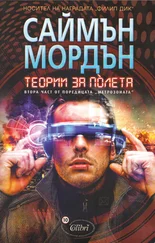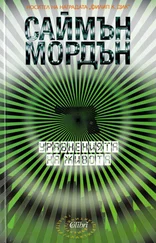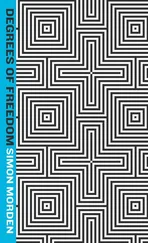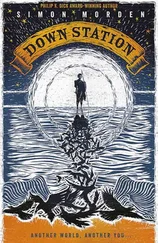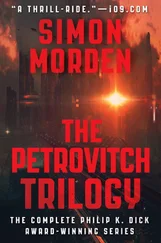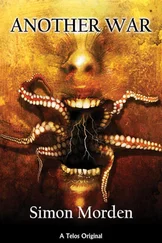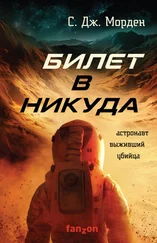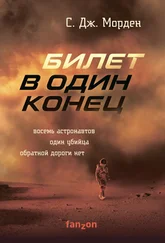He was clean, from the white-blond hairs on his head to the worn soles of his feet.
The sweeper went on a lanyard around his neck and under his shirt. He shouldered his bag, and crossed the road. There were cameras at the junction, looking down at the crowds that swarmed back and forth. He looked up and fixed one with a knowing stare. The next time he passed that way, the computers that could isolate and recognize a face would put a different name to his.
He kept on walking until the pyramid of domiks showed its entrance, shaped like an ancient megalith: a tunnel constructed of upright containers with others braced on top to create a space that was as high as a cathedral, the main street that pierced the core of Regent’s Park. Sodium lights hung from above and burned orange, illuminating the hawkers, the whores and the hustlers who bought and sold everything and anything.
It was like the Nevskiy Prospekt during the darkest days of Armageddon. Winter, freezing Arctic winds howling down from Siberia, the bass rumble of generators and babble of voices, flashes of light and color, the whisper of rumors—they have bread, that stall sells poisoned vodka, those fish are radioactive—the stench of struggle. The good old days when he ran wild through the unlit streets, stealing books and candles.
He kept on through the market bustle until he got to the Inner Circle, a distribution road in the very heart of the pile. Some people, driven by madness or guilt, would walk the Circle until they dropped. There were others who would wait for them and then strip the corpses, and others still wouldn’t wait even that long.
Regent’s Park was like that.
Petrovitch found Staircase Eight and started climbing. He kept climbing until the stair-dwellers dwindled to nothing and the corridors were empty. There was one last bulkhead light, then nothing but blackness. He reached into his bag for a tiny key ring torch.
The blue light was no more than a bubble, but it was enough to see by. He walked on until he was blocked by a door equipped with a mechanical combination lock. He held the torch in his teeth and slid the lock cover aside.
The keypad was numbered zero to nine in a circle, and the code was entirely crackable by someone who knew what they were doing. What else could hide Petrovitch’s treasure but the Golden Ratio?
He pressed each button in turn, listening for the click of the mechanism: one six one eight zero three three nine eight eight seven four. There was the most subtle of noises, almost a sigh, and he leaned heavily on the handle beneath the lock. The bolts behind the door lifted clear of the frame and he swung inward.
The air was warm and stale, but dry; a pharaoh’s tomb.
Inside, he leaned on the door and felt it grate shut. The bolts dropped back into place with an echoing bang. Petrovitch held up his single spark of light: the container was empty, save for a trunk in the far corner. Everything was just as he’d left it.
He stepped up on the trunk’s lid, and felt above him. High up, on the wall, was a bolt. He pulled at it, working it from side to side until it slid across. There was another one, stiffer, but eventually it gave up and moved.
He hit between them with the flat of his hand, and forgot to turn his head or close his eyes. Light burst in, blinding him, flooding the domik, chasing out every shadow.
Petrovitch sat down on the trunk, took off his glasses and dabbed at his streaming face with his sleeves. He turned the torch off, then climbed back up to stand on tiptoe and look out.
He was in the highest level of containers, right at the very top, and he could see a swathe of the Metrozone, from southwest to northwest, hazy and indistinct at the ground, but the towers were clear and confusingly seemed closer. Oshicora’s Tower was out of sight, to the south, but if he screwed his eyes up tight and wished, he could just about make out the subtle slope of the land that lay crushed beneath the weight of buildings; the Thames valley that stretched out beyond the M25 cordon, into the uninhabited wilds of the Outzone.
He realized that it wouldn’t stay that way forever. The center could not hold.
Dreaming wouldn’t solve any of his current problems. He turned his back on the view, and climbed down to the metal floor of the domik. He wondered if there was anyone beneath him, suddenly aware of new light footsteps over their heads. Maybe.
He opened the trunk. It wasn’t locked, had no need to be locked, and the catches sprang aside easily. Inside were things of use, like a couple of blankets and bubble-wrapped electronics, and things of no use at all, just pieces of heavy paper bearing pictures of people who he’d never see again and thought him dead.
It was to those he went first, though. A pair of children playing in the low, red light of the midday sun, a girl called Irena and a boy called Alexander. A woman, the children’s mother, face lined by hard work and exhaustion. A man, lying in a hospital bed, bald, emaciated, drips in his arms and tubes up his nose, grinning and waving to the camera.
Fifteen years of life that amounted to a thin stack of photographs, and they weren’t even his own memories anymore. They belonged to someone else, even if he could remember them in ice-sharp clarity.
He shook himself free of the reverie. He gathered up the items in bubble-wrap and laid them out on the floor: a laptop computer whose case was pre-Armageddon and components most definitely not; a solar panel, rolled up; a silvered umbrella, folded; a fat cube of nanotube battery; a bundle of wires to connect them all together. This whole collection of electronics was dusty, unused, untested. Ripe for replacement, in fact. He’d been thwarted in that: now all he could do was hope that everything would work as promised.
He took a methodical approach, getting power from the panel to the battery first, plugging in the computer, extending the antenna and aiming it through the window at one of the relay stations visible on a rooftop down below.
There was a signal. He could get online. He realized that he’d been holding his breath, and he let it all out with a moan.
He typed furiously, scripting and executing program after program. One to hide his access point, one to lock down his Clapham hab, one to copy and encrypt the contents of his hard drive, and another to send it in little packages to a hundred dormant mailboxes. One more to erase itself and then fall into dormancy.
He continued with his housekeeping, ripping up history. It took a little while. Some of the computers he was targeting were well defended.
He’d dealt with the past. Now for the future. He timed his death for just after midday tomorrow. He’d kill himself, swiftly, painlessly, and arrive dead at a hospital in Greenwich: cause of death, heart failure. The body would be shipped to the crematorium, his ashes claimed, and his sad demise would be registered with the Metrozone Authority.
He bought airline tickets to Wellington under another identity. In the morning, he’d tuck the little bundle of photographs in his bag, and Samuil Petrovitch would die. No one would mourn his passing.
It was still night when he woke up, but it could never be called dark. Swaddled in blankets, he climbed up onto the trunk to look out of the window, to see the brilliant lights of the city: from the fiery orange of sodium glare that burned at street level to the three-colored laser banks that scrawled logos and messages on the underside of the clouds. In between was the white glow and moving pictures of the towers, pointing the way to salvation. Points of light slid across the umber sky and along the roads, red above and red below.
It was bright to the edge of pain, sharp enough to cast his shadow on the blank wall behind him.
Читать дальше
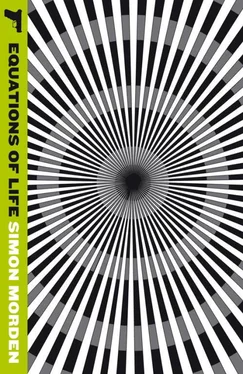
![Саймон Морден - Билет в никуда [litres]](/books/388091/sajmon-morden-bilet-v-nikuda-litres-thumb.webp)
![Саймон Морден - Билет в один конец [litres]](/books/395533/sajmon-morden-bilet-v-odin-konec-litres-thumb.webp)

